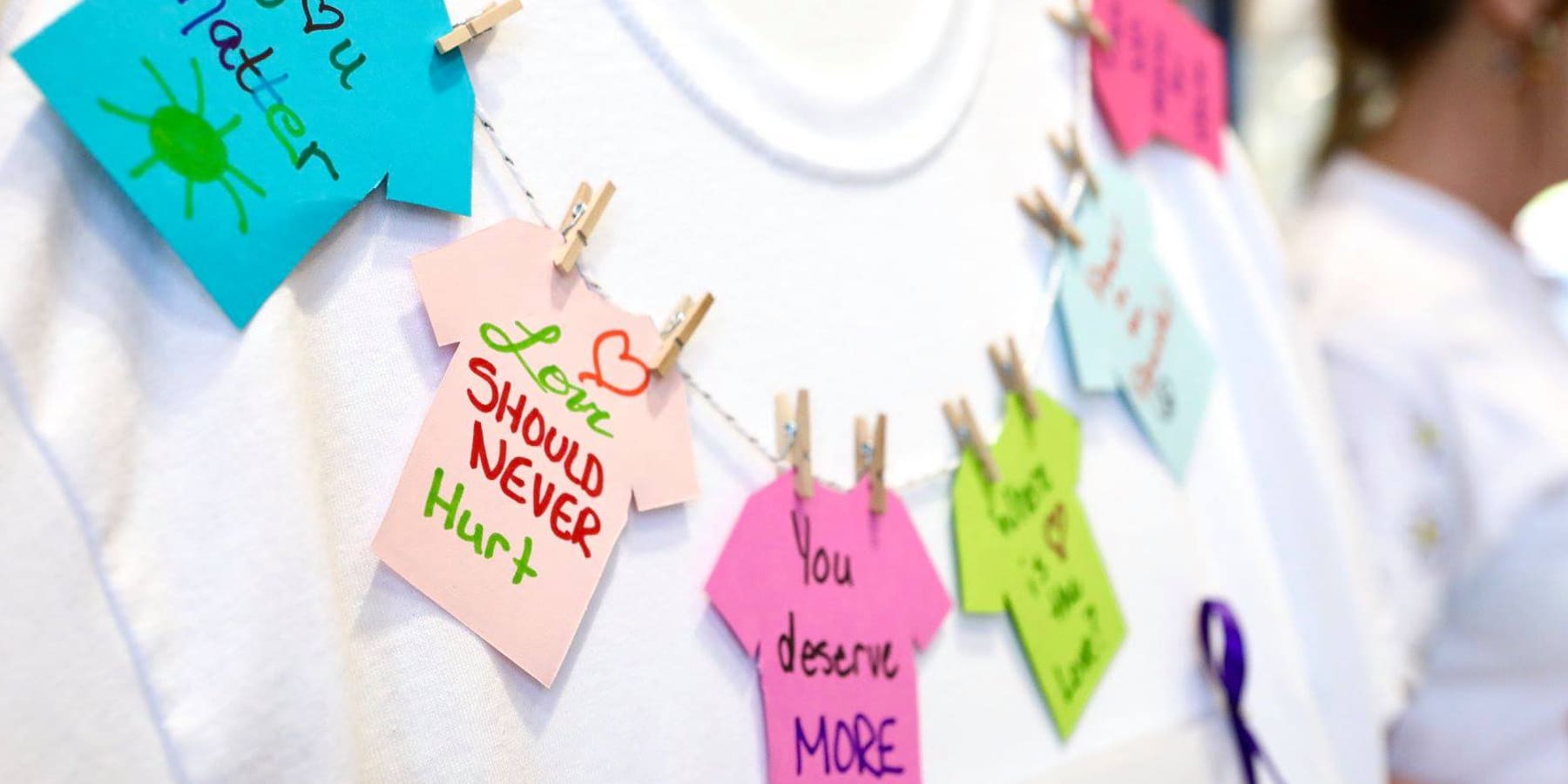Too many people experience harm at the hands of an intimate partner, but we can all take steps to make our campus and community safer. See the resources and information below to learn how you can be part of the solution.
Learn More About Domestic Violence
Dating or domestic violence is when one partner uses coercive and abusive behaviors to gain power and control over the other partner in the relationship. Domestic violence is usually not a one-time occurrence, but rather a pattern of abusive and controlling behaviors. It can take many forms, including physical violence, coercion, threats, intimidation, isolation, and emotional, sexual or economic abuse.
The warning signs of dating or domestic violence include jealousy, name-calling, possessiveness, and the abuser making you feel that you are the one causing their behavior. You may feel:
- Confused that someone you love (or once loved) is hurting you
- Ashamed or guilty or wonder if anyone will believe you
- Worried about calling the police or telling your family, friends, or co-workers
- Hopeless that things will ever change
- Unworthy of life without your abuser
If you have experienced any signs of domestic violence, it is important to know that it is not your fault. Often, abusers will use the tactic of convincing you that you deserve the abuse (e.g. “You make me act like this.”).
No one ever deserves to be put down, physically harmed, or have their lives controlled by another person – no matter what.
Get Involved
This month, Project HEAL and Counseling Services are hosting several events to start conversations about the violence happening in our community and provide resources for those who need them. Each of us has a unique story that shapes how we look at, interact with, and are viewed by those around us. We all play an invaluable role in creating the world we wish to live in.
When we join together as a community to say that violence isn’t tolerated, we make our spaces safer for everyone.
#DVAM Events
Purple Thursday – October 21
Instagram Live Resource Fair – October 21
Bystander Intervention Certification Training – October 22
Ex Parte Workshop – October 26
The Clothesline Project – October 27
Painting Messages of Hope – October 28
For more information about how to participate in each of these events, please check out the Project HEAL Get Involved page.
Resources
If you believe that you are in an unhealthy or abusive relationship, consider talking to a trusted friend or victim advocate. You know your situation and the threats to your safety best, but talking with someone you trust can help you consider options and make a safety plan for both staying in the relationship or leaving the relationship. Leaving an abusive relationship can be dangerous, so it’s important to do so with support and a safety plan in place.
In addition to the resources listed below, please check with the Project HEAL resource page for local resources or contact the Project HEAL victim advocate at swadleyr@otc.edu or 417-447-7859 for support and assistance. Additionally, Title IX can assist you in pursuing an education while facing these additional obstacles. You should always call 911 if you are in immediate danger.

